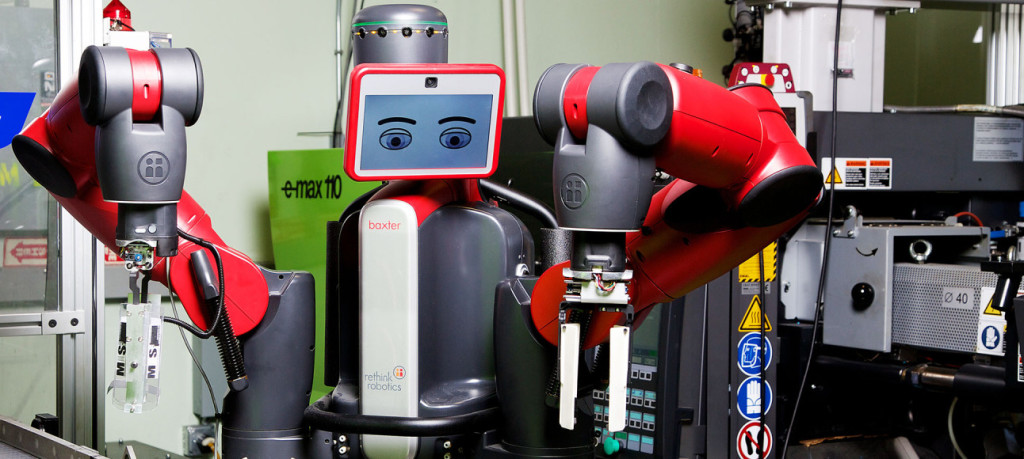
Robohub.org
Baxter goes to Oregon, to help bring robots to the frontlines of the Ebola outbreak

At the end of January, Baxter left OSRF for a stint in Corvallis, Oregon where he will be used in a project that is investigating the use of teleoperated robots in the treatment of highly contagious diseases such as Ebola. He will be joining the Personal Robotics Group, part of Oregon State University’s growing Robotics Program, as part of their NSF-funded work to bring robots to the front lines of the current Ebola outbreak.
Health care workers are at the highest risk of exposure when working in close proximity to infected patients. Even the use of personal protective equipment still exposes workers to considerable risk of infection. These risks are due to both faulty practice and extreme conditions, especially in harsh locations such as West Africa where high temperatures and humidity present real operational challenges. The use of intuitive teleoperation interfaces will enable health care workers to remotely operate robots (such as Baxter) to perform significant portions of their jobs from a safe distance. Examples of potential tasks include patient monitoring, equipment moving, and contaminated material disposal. This will allow health care workers to provide needed care while maintaining the important patient-health care worker interaction, all while making their jobs safer and more tolerable.
Here is an example of a task that Baxter will help investigate, as performed by the PR2:
https://www.youtube.com/watch?v=1jYWJm_UUoU
tags: Baxter, c-Health-Medicine





